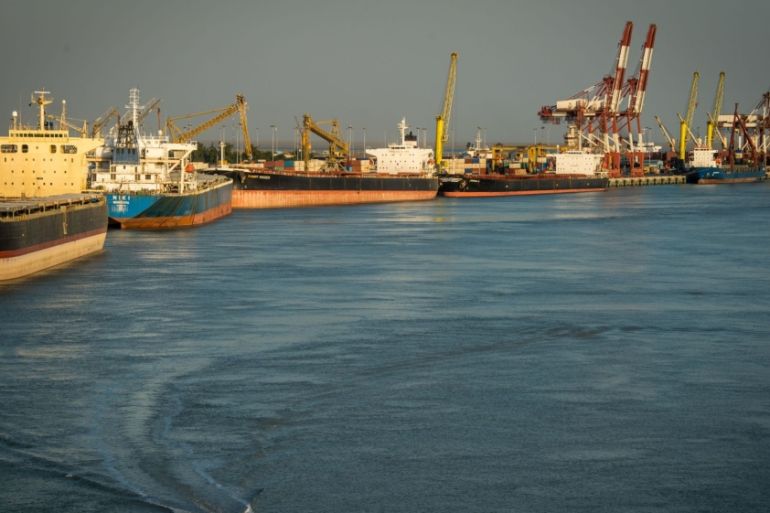New US sanctions take aim at what’s left of Iran’s economy
Latest round of sanctions aim to cut off Iran’s few remaining sources of export revenue.

The Trump administration imposed new sanctions on Iran on Friday, including penalties on the Islamic Republic’s metals and some senior leaders, following Tehran’s attack on U.S. military bases.
The sanctions target the nation’s steel industry, as well as eight senior Iranian officials and other sectors of the economy, including construction, manufacturing, textiles and mining, said Treasury Secretary Steven Mnuchin and Secretary of State Michael Pompeo.
Keep reading
list of 4 itemsExplosions kill dozens gathered for anniversary of Soleimani assassination
Iran blasts updates: Deadly explosions target Soleimani death anniversary
Deadly explosions in Iran during Soleimani anniversary procession
“We want Iran to simply behave like a normal nation,” Pompeo said at the White House.
The move comes one day after President Donald Trump said Iran would be sanctioned “immediately” for the airstrikes against two U.S. military installations in Iraq, which resulted in no casualties.
The administration first prepared the sanctions in December, before tensions escalated between the U.S. and Iran, leading to the Jan. 2 U.S. airstrike in Baghdad that killed top Iranian general Qassem Soleimani.
The new measures are aimed at cracking down on Iran’s few remaining sources of export revenue and squeezing the nation’s economy to force its leaders back into negotiations for a new nuclear agreement.
Tehran has repeatedly rebuffed the Trump administration’s overtures to talk, even as existing sanctions have crippled the Iranian economy. Yet President Hassan Rouhani has confronted street protests against price increases and corruption that has left his government politically vulnerable, potentially benefiting hardliners even more opposed to Washington.
Guidance from the State and Treasury Departments will warn ship insurers, banks, charter companies, port owners, crews and captains that they all face sanctions exposure if they can’t account for the legitimacy of the cargoes they carry.
The administration is seeking to close a significant loophole that allows Iran and other nations to avoid sanctions: ship-to-ship transfers of crude oil, refined petroleum and other goods.
Trump on Wednesday attempted to lower tensions with Iran by standing down from further military actions that could have sparked a new war in the Middle East.
Trump and top administration officials have said they are open to new talks with Tehran, but Iranian leaders have not been eager to reciprocate.